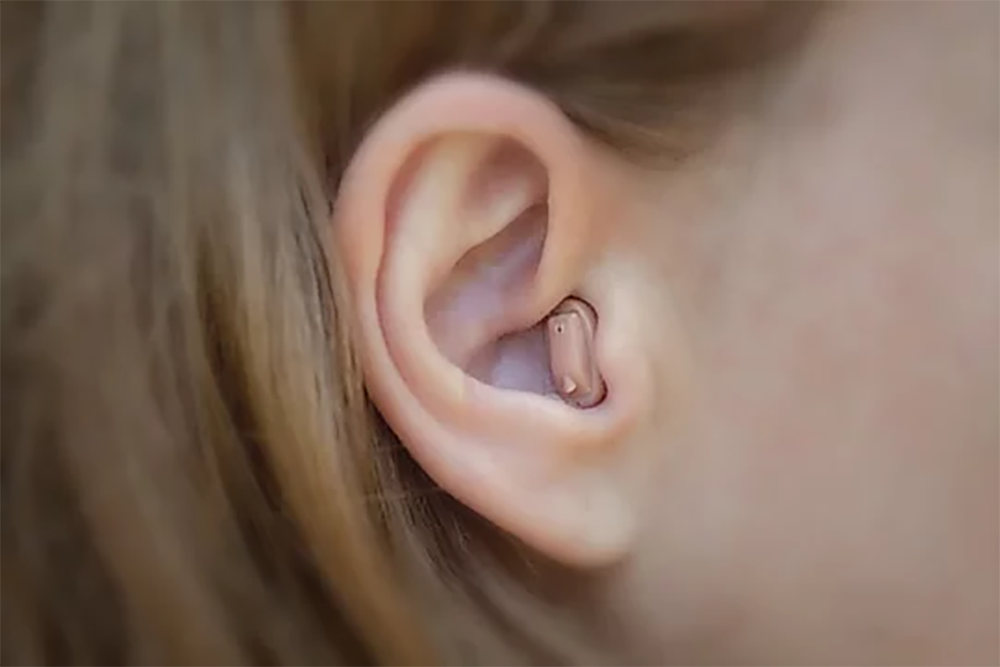Discover the hearing aids of 2025. Improve your hearing today!
The world of hearing aids is rapidly evolving, with cutting-edge technology transforming the way we experience sound. As we look towards 2025, the future of hearing assistance promises to be more advanced, discreet, and effective than ever before. Whether you're experiencing hearing loss or simply curious about the latest innovations, this article will explore the exciting developments in hearing aid technology and how they can enhance your auditory experience today

What are the latest advancements in hearing aid technology?
Hearing aid technology has made significant strides in recent years. Some of the most notable advancements include:
-
Artificial Intelligence (AI) integration: AI-powered hearing aids can learn and adapt to your listening preferences, automatically adjusting settings based on your environment.
-
Rechargeable batteries: Many modern hearing aids now feature long-lasting rechargeable batteries, eliminating the need for frequent battery changes.
-
Bluetooth connectivity: Wireless connectivity allows users to stream audio directly from smartphones, TVs, and other devices to their hearing aids.
-
Advanced noise reduction: Sophisticated algorithms can differentiate between speech and background noise, enhancing clarity in challenging listening environments.
-
Smaller, more discreet designs: Technological miniaturization has led to hearing aids that are nearly invisible when worn.
How will hearing aids in 2025 differ from current models?
By 2025, we can expect hearing aids to be even more sophisticated and user-friendly. Some anticipated differences include:
-
Enhanced AI capabilities: Future hearing aids may utilize more advanced AI to provide even better sound processing and personalization.
-
Improved battery life: Expect longer-lasting batteries and potentially even solar-powered options for continuous use.
-
Augmented reality integration: Hearing aids may incorporate visual cues and information to complement auditory input.
-
Biometric sensors: These devices might monitor overall health metrics, such as heart rate and physical activity, in addition to hearing.
-
Self-adjusting capabilities: Advanced sensors could allow hearing aids to automatically adapt to new environments without manual intervention.
What role will artificial intelligence play in future hearing aids?
Artificial intelligence is set to play a crucial role in the development of hearing aids by 2025. Some potential applications include:
-
Real-time language translation: AI-powered hearing aids could potentially translate foreign languages in real-time, breaking down communication barriers.
-
Enhanced speech recognition: Advanced AI algorithms may improve the ability to distinguish between multiple speakers in complex listening situations.
-
Predictive maintenance: AI could detect potential issues with the hearing aid before they become problematic, ensuring optimal performance.
-
Personalized sound profiles: Machine learning algorithms could create highly customized audio settings based on individual preferences and hearing patterns.
-
Integration with smart home devices: AI might enable seamless interaction between hearing aids and other smart devices in the user’s environment.
What unique features can we expect from hearing aids in Canada?
In Canada, hearing aid technology is likely to adapt to the country’s diverse environments and lifestyle needs. Some unique features may include:
-
Extreme weather resistance: Given Canada’s varied climate, hearing aids may be designed to withstand a wide range of temperatures and conditions.
-
Multilingual capabilities: With Canada’s bilingual nature, hearing aids might offer enhanced support for both English and French, as well as other commonly spoken languages.
-
Telehealth integration: Remote adjustment and consultation features could be particularly beneficial in rural or remote areas of Canada.
-
Outdoor activity optimization: Settings tailored for popular Canadian outdoor activities like skiing, hiking, or ice skating may be incorporated.
-
Integration with Canadian healthcare systems: Hearing aids might offer features that align with Canada’s healthcare policies and electronic health record systems.
How much will hearing aids cost in 2025 and what options are available?
While it’s challenging to predict exact costs for 2025, we can examine current trends and make informed estimates. Here’s an overview of potential pricing and options:
| Type of Hearing Aid | Estimated Price Range (CAD) | Key Features |
|---|---|---|
| Basic | $1,000 - $2,500 | Essential functions, limited customization |
| Mid-range | $2,500 - $4,000 | Bluetooth, rechargeable, noise reduction |
| Premium | $4,000 - $7,000 | AI integration, advanced features, top sound quality |
| High-end | $7,000+ | Cutting-edge technology, maximum customization |
Prices, rates, or cost estimates mentioned in this article are based on the latest available information but may change over time. Independent research is advised before making financial decisions.
It’s important to note that while prices may seem high, technological advancements often lead to more affordable options over time. Additionally, some provinces in Canada offer subsidies or assistance programs for hearing aids, which could help offset costs.
What steps can you take to improve your hearing today?
While we look forward to the hearing aids of 2025, there are steps you can take now to enhance your hearing experience:
-
Get a comprehensive hearing test: Understanding your current hearing status is crucial for appropriate intervention.
-
Explore current hearing aid options: Modern hearing aids already offer many advanced features that can significantly improve your quality of life.
-
Practice good hearing health: Protect your ears from loud noises and maintain overall health to support your hearing.
-
Stay informed about technological advancements: Keep up with the latest developments in hearing aid technology to make informed decisions about your hearing care.
-
Consider lifestyle factors: Choose hearing aids that align with your daily activities and needs, whether that’s water resistance for swimming or Bluetooth connectivity for frequent phone use.
The future of hearing aids is bright, with exciting advancements on the horizon. By staying informed and proactive about your hearing health, you can ensure that you’re well-positioned to benefit from these innovations as they become available.
This article is for informational purposes only and should not be considered medical advice. Please consult a qualified healthcare professional for personalized guidance and treatment.




